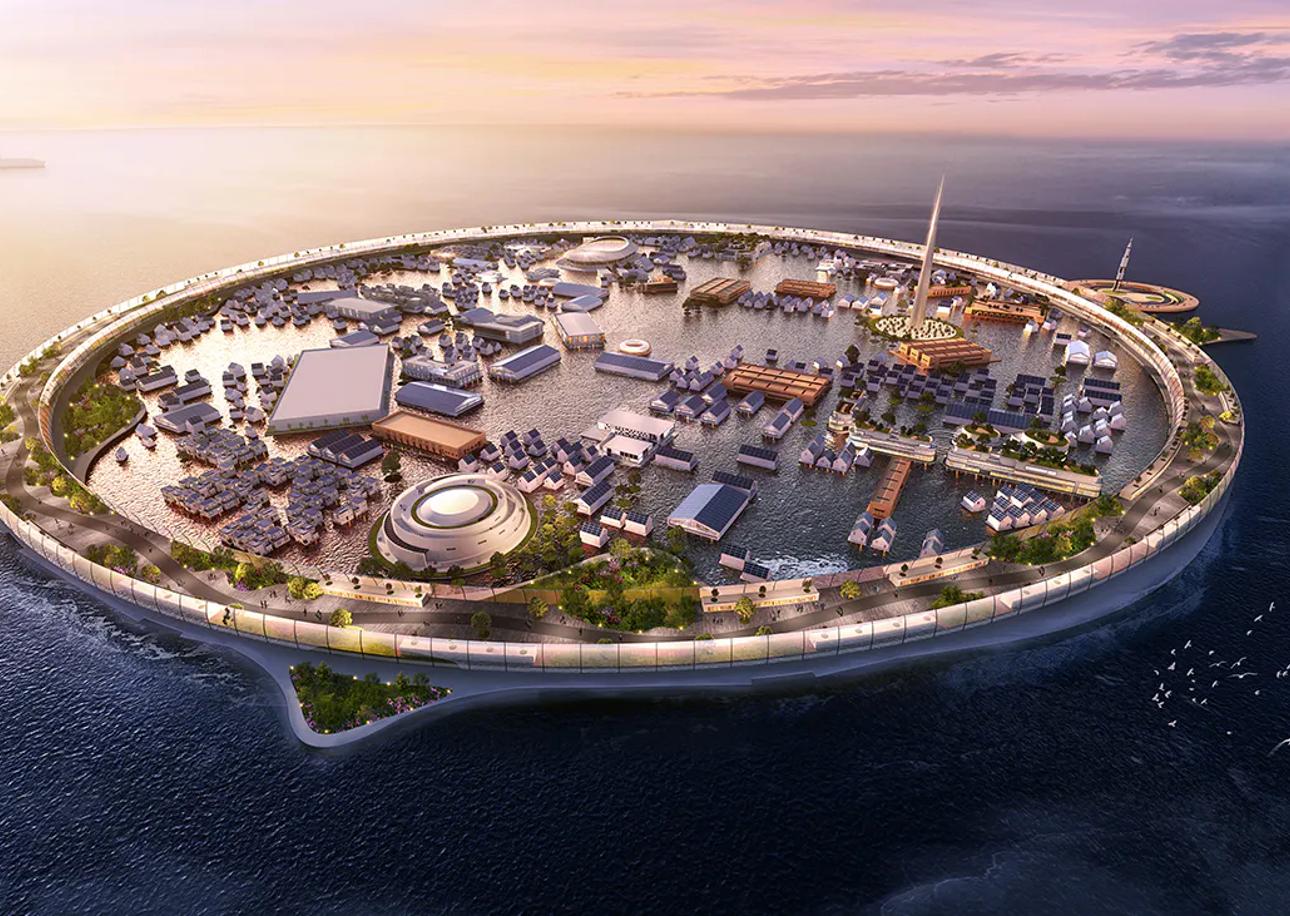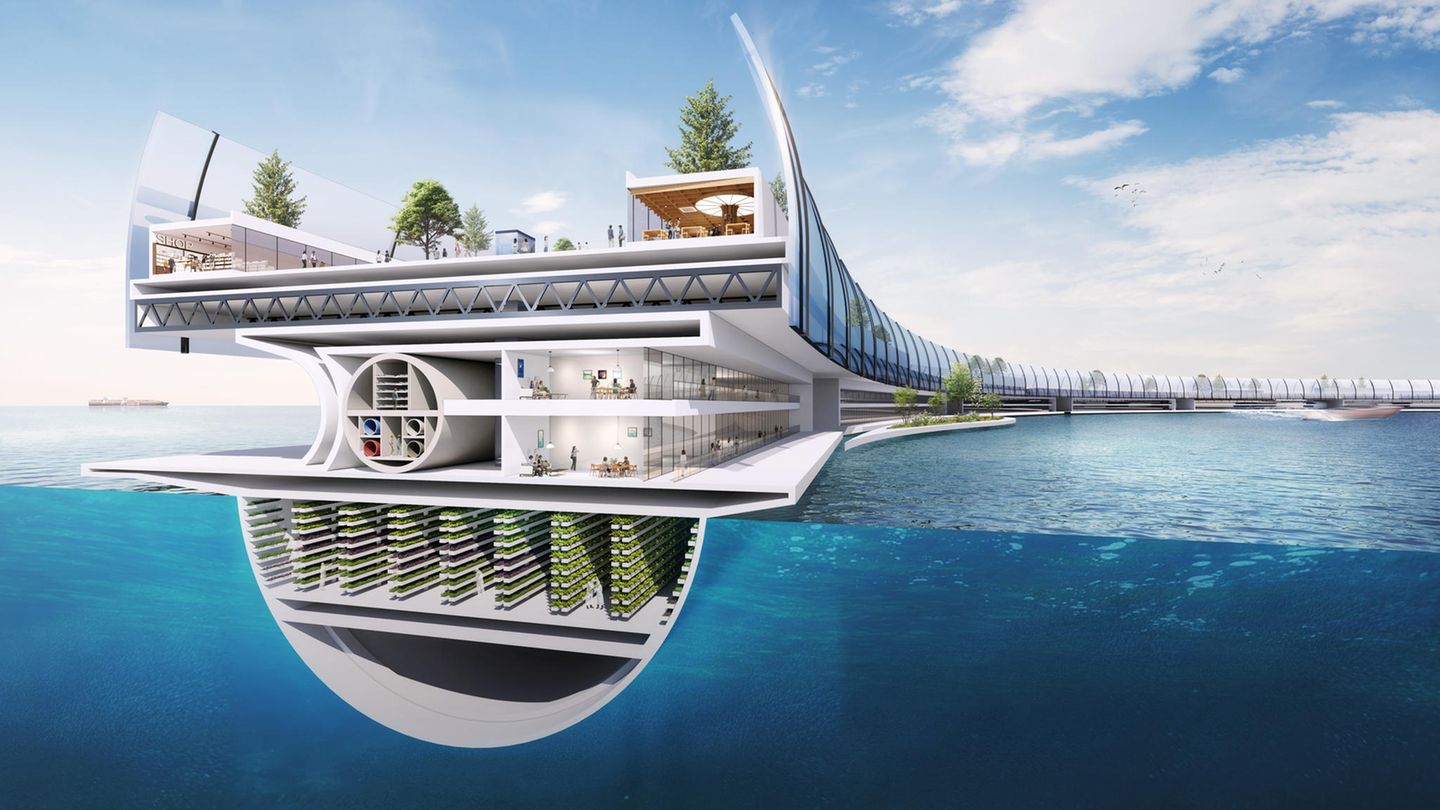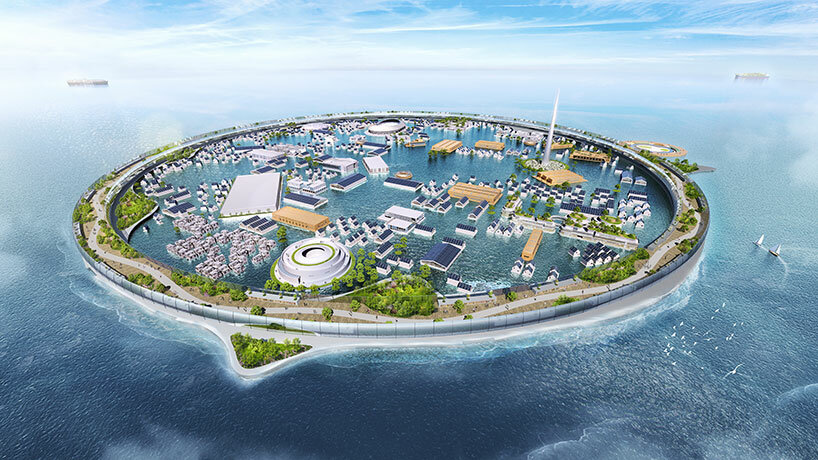Gentlemen’s Guide: Bangkok’s 5 Best Barber Shops
These top 5 barber shops in Bangkok are where gentlemen can elevate ...

Japanese designers are taking proactive measures to address the impending rise in sea levels by envisioning a colossal floating city. Enter Dogen City, the brainchild of this visionary maritime start-up from Japan, which has unveiled an extraordinary plan to create a floating metropolis that not only adapts to climate change but also pioneers cutting-edge healthcare services and disease prevention for its residents. Spanning a vast 390 acres, this groundbreaking “no-illness” community will host 40,000 individuals, including 10,000 residents and 30,000 visitors.

With its circular design, the city is built to withstand natural disasters while boasting public housing, state-of-the-art medical research centres, sustainable food production facilities, and even launch pads for spacecraft. It’s a visionary concept that integrates multiple facets of human well-being, setting new concepts for urban living.
According to N-Ark’s website, the concept is rooted in “Dogen,” a term that symbolises the integration of medicine, food, and housing from the same origin. The design comprises three distinct layers, known as “industries,” each serving a unique purpose. The first layer features a livable and self-sustaining maritime village, fostering well-being and prioritising mental and physical self-care. Its circular formation also ensures protection against the threat of tsunamis. The second layer houses an undersea data centre that benefits from natural ocean cooling, minimising energy consumption. Drawing inspiration from Elon Musk’s SpaceX, the third layer functions as a launch and landing site for rockets, propelling the city into the future of space exploration.

Within Dogen City, residents will have the opportunity to participate in consultations that employ sensors, blood samples, and genome analysis to evaluate their health. Additionally, they’ll have access to advanced robotic surgery and drug research. When it comes to sustenance, innovative cultivation techniques utilising seawater as a nutrient source will nurture functional ingredients and crops right on-site.
This new approach to food production will yield an annual output of nearly 7,000 tons, all while generating a 22,265,000 kW of power. Although the precise location and completion timeline of Dogen City remain under wraps, the anticipation for this innovative venture continues to grow and if it can work in Japan who knows when we might see something similar in the Gulf of Thailand.
These top 5 barber shops in Bangkok are where gentlemen can elevate ...
In a cinematic landscape saturated with remakes, reboots and sequels, you might ...
While traditional TV shows are serving us endless boy-meets-girl tales. Thailand has ...
Must-have gadgets for kids in the Y2K are, predictably, making a comeback ...
Stay ahead of the curve with these three must-visit new restaurants in ...
See how Kim Steppé’s early passions, family values and entrepreneurial spirit continue ...
Wee use cookies to deliver your best experience on our website. By using our website, you consent to our cookies in accordance with our cookies policy and privacy policy